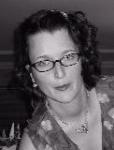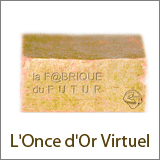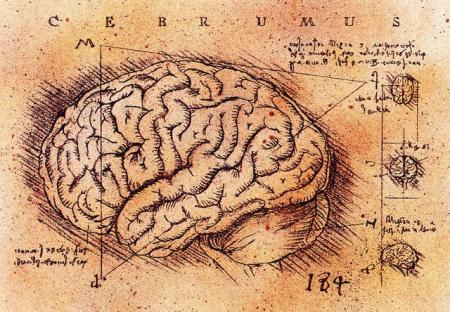24/01/2005
Blink par Nicole-Anne Boyer

As many people know who read The Tipping Point, Malcolm Gladwell of The New Yorker is one of the most interesting and gifted writers around. A superb pattern-recognizer and storyteller, Gladwell adroitly elucidates important cross-cutting themes and memes within our midst. As a wise writer once said, a good book reads you just as much as you read it. Gladwell has a knack for writing about topics that do precisely that, whether it be helping us see more deeply into how social networks shape our world to how our brains shape us.
His book, The Tipping Point: How Little Things Make A Difference, for instance, turned the conventional wisdom of systemic change on its head. Instead of happening slowly and incrementally, which is how most change is perceived, Gladwell made a compelling case that change also happens quickly and unexpectedly -- and seemingly overnight whether it be fashion fads, the hit success of popular TV shows, or the rapid drop in crime in New York. He argued that "idea epidemics" could spread as fast and decisively as any physical one, which is an obvious and refreshing message for worldchangers, although not without some untoward implications as well.
Gladwell's most recent book, Blink: The Power of Thinking without Thinking, is also worth checking out because he picks another important meme: the implications of recent discoveries in the neurosciences and studies about how our brain works for daily life. Indeed, if I was to pick one game-changing discontinuity for the future, I would have to say it will most likely come from this space, especially any insight that enables us to dramatically increase our bandwidth for learning and memory -- something that a knowledge-intensive economy would eat up (and drive) like a hungry mob of microbes in a sewage dump. So watch this space closely.
© Images.com/CORBIS
Russell R. Charpentie
Blink was inspired by a number of his articles archived on his website; in particular, The Naked Face which is an intriguing read about how people in law enforcement make life or death snap decisions. In a nutshell, the book highlights the role of our intuition and subconscious "rapid cognitive processes" in our decision-making, with examples that include everything from choosing our mates to making a strategic call in the battlefield. Again, Gladwell's aim is to challenge assumptions:
'We are innately suspicious of this kind of rapid cognition,'' Gladwell observes. We assume that long, methodical investigation yields more reliable conclusions than a snap judgment. But in fact, ''decisions made very quickly can be every bit as good as decisions made cautiously and deliberately.''
Well, sometimes. Therein lies the problem, as David Brooks highlights in a playfully balanced book review of Blink in the New York Times. This kind of "thin-slicing", a term Gladwell coins, is good only under certain conditions. In many conditions, "thick-slicing", the power of slower reflection is just as important and critically so. There are many situations where our impulses are just plain wrong. The trick is knowing the difference: when to trust your instincts and when not to. As anyone who has had flight training knows, this lesson becomes very clear. There are moments when your gut instincts can kill you: like when an aircraft stalls, to break out of it, the thing you need to do is point the nose down to the ground instead of pulling up which the reaction we naturally want to do.
In my work, I see this a lot with executives in industries and policy-makers in government agencies experiencing large systemic change, something we are seeing across the board these days (another tipping point of sorts which I won't digress about for now.) In these organizations, many of the "old hands" feel lost because their instincts -- the knowledge built up through years of experience -- is not a reliable guide to their decision-making. The good ones know that the future will not be the same as the past, requiring them to think "out of the box" and challenge their assumptions. This is hard because this involves a certain cognitive dissonance and discomfort, and often requires a retooling of capabilities, competencies and mindsets. And this is a process that doesn't happen overnight, despite the hope of some of these executives in search of quick fixes. Rather, this is something that can only unfold with slower reflection and iteration (heuristics designed to expand the zone of proximal development, to use learning theory jargon).
If only certain world leaders would similarly engage in this kind of deeper reflection -- a slowing down to go fast, which is the best method to surface and test key assumptions! While we can't blame Gladwell for what people do with his ideas, I do fear that books like his will inadvertently help rationalize and support the irresponsible actions of leaders who justify their decisions by their "gut" feeling.
In a similar vein, I disagree with Gladwell that most people distrust instinctual responses. With the President of the United States as a prime example, I know too many people who rely on nothing but these primordial senses and are proud to do so. As much as I am an advocate of the "whole person" approach to problem-solving, one that honours all forms of intelligence and knowing, I also think we can't throw the baby of rationality out with the bath water. I think it's safe to say that the invention of dentistry, public sanitation, germ theory, and the fact that we no longer burn witches at the stake en masse (at least not in the physical sense) are all positive byproducts of the Age of Reason.
A longer view might help put this into perspective as well. For instance, pale-neuroscientists, the folks who study how our brain has evolved over the past million years or so, argue that an instinct-driven way of being sufficed in an evolutionary time when we lived in smaller tribal groups with more localized and immediate challenges (like finding a safe way to hunt a wooly mammoth). But relying on instincts alone works less well -- as I've shown, often fatally -- when we have to make decisions by interpreting a much richer array of information spanning different time and spatial scales (like managing an enduring and collective response to challenges like global climate change, pandemics, or the massive reduction in arable land.) As any game explaining exponential change shows us, this kind of thinking is counter-intuitive and hard to grasp without rationality, whether it be through a process of scientific reasoning or using tools like computing to figure things out. This doesn't mean there is no role for intuition, which is often just a form of pattern recognition, as Gladwell successfully argues. It's just that we need to compliment this with a more sophisticated form of problem-solving that knows when to use what tool and where, that can judiciously blend the right kinds of intelligences at the right level in space and time. It's not overstating things, I don't think, to say that our fate as a species might depend on this leap in cognitive ability and consciousness ( a preoccupying theme of mine, I know.) Namely, we need to find creative ways to make real and relevant to mass audiences the connections between the global in the local and the local in the global.
Getting back to Blink, the book is definitely worth reading. Like all of Gladwell's fascinating pieces, it is written exceedingly well with delightful and memorable stories. But Brooks' main critique is right. There is no theory, no grounding to Gladwell's thesis, unlike The Tipping Point which had a proto-theory of change that showed how his "idea epidemics" spread through social networks within a matrix of key actors with catchy names ("connectors", "mavens" and "salesmen"). This kind of framework is missing, but will likely come from other writers seeking to cover these burgeoning ideas in the cognitive science space.
Indeed, stepping back from Blink, Brooks points out something even more important:
'Blink'' is part of a wave of books on brain function that are sweeping over us as we learn more about the action inside our own heads. This literature is going to have a powerful effect on our culture, maybe as powerful as the effect Freudianism had on our grandparents' time (the last time somebody tried to explain the brain's backstage process).
We should be a little wary of surrendering this field to the scientists. Philosophers ranging from Vico to Michael Oakeshott to Isaiah Berlin were writing about thin-slicing (which they called ''wisdom'') long before the scientists started picking apart our neurons, and long before psychologists started showing people snippets of videotape. And much of what they observe is more profound than anything you can capture with some ginned-up control group test in a psychology lab.
Having some distance to see how these memes are affecting our worldview -- our resource allocation, our policy-making, our choice of tools and techniques -- would be an important thing for sure. Remember how Darwin's ideas got skewed and perverted into social darwinism, the ubiquitous "survival of the fittest" doctrine, which Darwin himself discredited as being a simplified and incomplete view of evolution, but nonetheless was such a compelling explanatory framework for Victorian society at the time that it stuck and is regrettably still with us, dominating economic and political policy-making and right-wing projects. We wouldn't want the same thing to happen with the next wave of frameworks coming out of the cognitive sciences.
So who and what do we turn to for this kind of wise commentary, sense-making, and counterbalance to these discourses? Any candidates come to mind? I can think of few intellectuals who can overcome the barriers to entry (that is, mastering all of the knowledge across relevant fields) to get beyond the surface of popular reporting and guide us into deeper epistemological insight. This is a worry, a key limitation as science outstrips the public's ability to digest it. Perhaps someone needs to take Gregory Bateson's "Ecology of the Mind" approach the next step? He advocated an architecture of problem solving: a way of reflecting on reflecting, a way to upframe how we are thinking about thinking so that we can get this distance and see the forest through the trees, and perceive how certain memes are influencing discourse and discovery in a systemic way. Indeed, in a protean postmodern sense, it would be rather appropriate to have a kind of meta-analysis about how we're analyzing our brain, about how we're making sense of the discoveries about cognition. So I look forward to seeing more of this kind of meta-framing work. It delights those neurons of mine, both rapid and slow.
Nicole-Anne Boyer est consultante en prospective (Adaptive-Edge) et rédactrice du blog Fuzzy Signals.
22:20 Publié dans Foresight chronicles, Publications - Livres | Lien permanent | Commentaires (0) | Tags : Prospective


















































































































